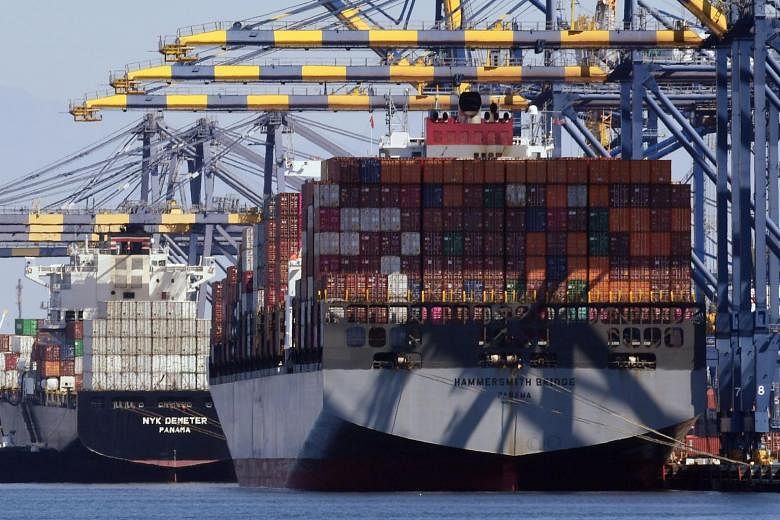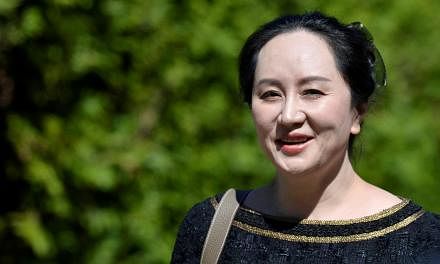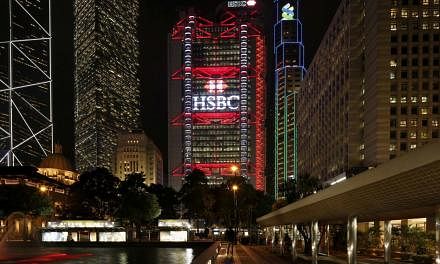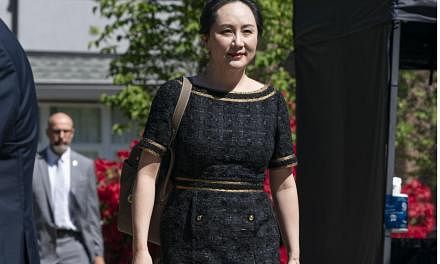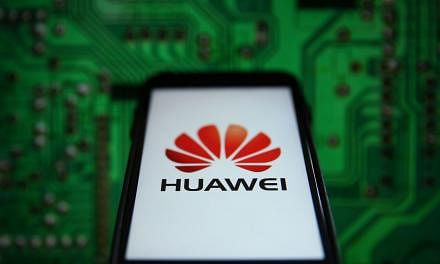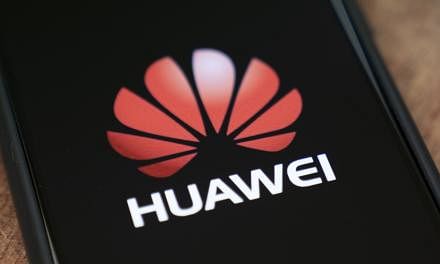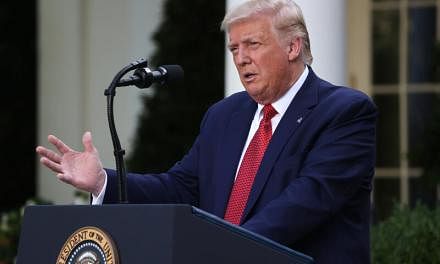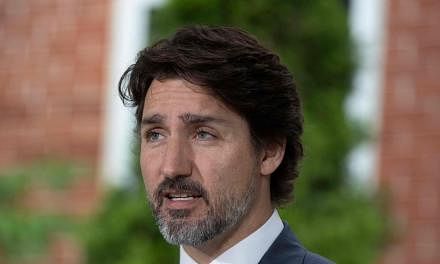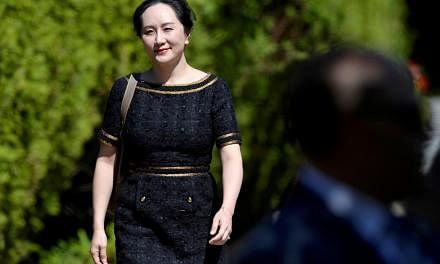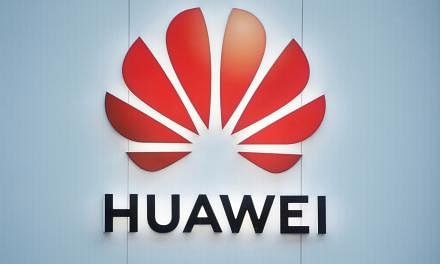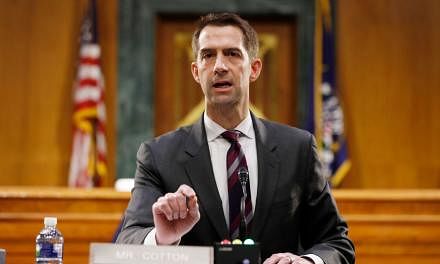HONG KONG (NYTIMES, AFP) - The growing tensions over trade between the United States and China temporarily eased after a meeting between US President Donald Trump and Chinese President Xi Jinping earlier this month. But at the same time, distrust between the two countries, and now Canada, has escalated over the detentions of a leading Chinese executive in Canada and two Canadians in China.
Here is a look at the recent rise in trans-Pacific tensions, and what could happen next.
A Trade Dispute Deferred
Mr Trump has confronted China over its trade practices, and the US has imposed tariffs on US$250 billion (S$343 billion) of Chinese goods this year. China retaliated with its own tariffs on a range of US imports.
The escalating tariffs brought ties between the two countries to one of their lowest points in recent years, but at their meeting in Buenos Aires, Argentina, during the Group of 20 summit, Mr Trump and Mr Xi agreed to a truce. The US would delay a tariff increase on US$200 billion worth of goods set for Jan 1 while the two sides negotiated a more permanent deal, with a March 1 deadline.
China also agreed to lift barriers on cars, food and fuel from the US and has increased imports of some products, including soybeans. But China has tried to balance its softer approach on trade with fierce criticism of the detention of one of its top tech executives, events that have unfolded almost simultaneously.
A Star Chinese Executive Is Arrested
On Dec 1, the same day that Mr Trump and Mr Xi met in Argentina, a top executive at the Chinese technology company Huawei - who is also the daughter of its founder - was stopped at Vancouver International Airport.
The executive, Ms Meng Wanzhou, was arrested at the request of US authorities, who accused her of misleading financial institutions into violating US sanctions on Iran.
Ms Meng, Huawei's finance chief, was a well-known representative of China's technological clout, often appearing at events around the world. Her arrest set off indignation in China, and the government summoned the US ambassador, Mr Terry Branstad, to complain. Communist Party media outlets criticised her treatment and warned of consequences for Canada.
"Only by correcting its mistake, immediately ending its violation of a Chinese citizen's lawful and legitimate rights and giving the Chinese people a due explanation, can Canada avoid paying a heavy price," the People's Daily newspaper said in an editorial on Sunday (Dec 9).
The resulting crisis is to be blamed on "a trade war between China and the United States", Mr Fred Bild, a former Canadian diplomat and Asian studies professor at the University of Montreal, told AFP.
"Washington is using Canada in its trade battle with China," he said.
Ms Meng was granted bail of C$10 million (S$10.3 million) on Tuesday. While she awaits extradition to the US, she plans to pay for her own 24-hour physical and electronic monitoring and will be subject to a curfew between 11pm and 6am.
Mr Trump, in an interview with Reuters, said he would consider intervening in the case if it would help pave the way for a trade deal. Legal experts said that while he does have the authority to order the government to drop an extradition request or even the case against Ms Meng, it would set a worrisome precedent of mixing rule of law with trade goals.
Some suggested Ms Meng's challenge to extradition had been strengthened because Mr Trump may have inadvertently given her a way to avoid extradition by arguing that her arrest is a politically motivated case, in which the bar for extradition is far higher.
"He's handed ammunition to Ms Meng's lawyers," said Mr Robert Currie, a professor of law with expertise on extradition at Dalhousie University in Halifax, Nova Scotia.
Ms Meng's lawyers could argue that "she's being used as a proxy in a trade war, and we're not sure she will get a fair trial in the United States", Mr Currie said. "It's not just about criminal law anymore. It's about politics."
Foreign Minister Chystia Freeland of Canada clearly saw the implications of Mr Trump's remarks.
"Our extradition partners should not seek to politicise the extradition process or use it for ends other than the pursuit of justice," she told a news conference on Wednesday.
Canadians Are Detained in China
The detention of two Canadians in China, apparently in retaliation for Ms Meng's arrest, added to the pressure Canada faces.
On Monday, a former Canadian diplomat was detained by the Beijing bureau of the Ministry of State Security. The former diplomat, Mr Michael Kovrig, is senior adviser for north-east Asia at the International Crisis Group, a non-governmental organisation that works to reduce violent conflict. The group said it had received no information since Mr Kovrig's detention and was concerned for his health and safety.
On Wednesday, word came that another Canadian citizen had been questioned by Chinese authorities and then detained. That person, Mr Michael Spavor, is a writer and entrepreneur based in north-east China who has travelled extensively in North Korea.
The Chinese Ministry of Foreign Affairs said on Thursday that the two Canadians were under investigation by state security officers in Beijing and Liaoning province in north-east China on suspicion of "engaging in activities that endangered China's national security".
Under a 2016 law that has had a chilling effect on foreign non-profits working in China, representatives of unregistered non-governmental organisations can be held for as long as 15 days and deported. But a separate national security investigation could involve far more serious charges.
A former Canadian ambassador to China, Mr Guy Saint-Jacques, said the dispute would likely worsen and beckon an economic backlash by China, the world's second largest economy behind the US.
"They will start to increase pressure, cancelling contracts, maybe stopping shipments to China of key exports like canola, pork and beef," Mr Saint-Jacques said.
Experts quoted by the Chinese tabloid Global Times, a mouthpiece of China's communist government, also raised the prospects of a decline in the number of visits by Chinese tourists and businessmen to Canada.
Since Beijing approved Canada as a tourist destination for its citizens in 2010, the number of Chinese tourists has risen by 20 per cent per year to almost 700,000 in 2017, and Ottawa hoped to double the figure by 2021.
"But for now, Canadians are standing alone at the edge of an abyss, with a Chinese noose around our necks and American shivs sticking out of our backs," said an editorial in Canada's National Post.
